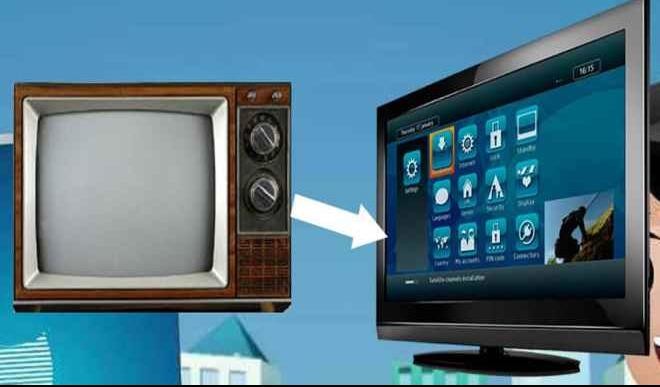Digital Switch Over and subversion of truth
On 29 October 2018, the National Broadcasting Commission (NBC) hosted a stakeholders meeting at the BON Hotel in Asokoro Abuja. At that meeting the stakeholders agreed that the worst was over. A proposed timetable for the phased and timed switch over of the entire nation was circulated to members for their input and agreement before […]

On 29 October 2018, the National Broadcasting Commission (NBC) hosted a stakeholders meeting at the BON Hotel in Asokoro Abuja.
At that meeting the stakeholders agreed that the worst was over. A proposed timetable for the phased and timed switch over of the entire nation was circulated to members for their input and agreement before formal presentation to and discussion with the content owners particularly those under the aegis of The Broadcasting Organisations of Nigeria (BON) chaired by John Momoh, the reputable Chairman of Channels TV.
The stakeholders were basically all agreed that substantial progress had been made and that the trial period was over. This consensus was considered a huge achievement given that previous discussions were hardly unanimous.
It was safe to assume that the DSO was set to start coasting.
But sometime in the middle of November 2018 the ICPC through its spokesperson released a press statement attempting to indict NBC in the DSO process.
The ICPC press release raises several issues and must be viewed in the context of the following questions: One, why would ICPC, a law enforcement attempt to bring to disrepute. Without cogent reason, a program that is a flagship of the Federal Government of Nigeria? Two, Is it a coincidence that ICPC is intervening just when the stakeholders have charted a course? Three, What is the link between the ICPC press release and the recent return of N2billion paid by GOTV into NBC account?
That ICPC is indeed a law enforcement agency empowered by its enabling law to investigate and prosecute is not in doubt.
Assuming indeed that ICPC has carried out an investigation in this matter and considering the powers vested in it under the laws, what should be the result of such investigation?
Depending on the considered opinion of its legal department the result would be to or not to prosecute the subject of the investigation. In reaching a decision the legal department will differentiate between fact and fiction and avoid putting the ICPC in the possible embarrassment that a failed prosecution would engender.
Like I alluded to in my introduction it is clear that the stakeholders had charted a way out of the imbroglio that had previously bedeviled the program.
Who therefore is interested in seeing that the DSO is not successful? In other words who are those that feel they will lose out if the DSO program succeeds or who are those that feel excluded from the DSO program?
Very clearly and as several writers have concluded certain foreign owned entities feel very threatened by the success of the DSO program of the Federal Government of Nigeria and are bent on truncating the program.
In the new digital ecosystem it is clear that operators of DTT Pay TV in Nigeria cannot (just like non pay DTT operators) self-carry their digital signals. These operators are basically Startimes and GOTV who are both foreign owned subsidiaries operating in Nigeria. They have displayed, in every possible way, their vehement opposition to the Federal Government policy on the DSO. Some weeks ago it was reported that GOTV paid the sum of N2billion to NBC for the renewal of the self-carry DTT Pay TV license. In the same report NBC is said to have rejected and returned the N2billion.
It is strange that a law enforcement agency will issue a press release on an inconclusive investigation and a matter where even the NBC spokesperson has conclusively stated the ignorance of NBC to its DG being the subject of an ICPC investigation.
Olabisi Animashaun, Georgia State University, Atlanta, United States of America
